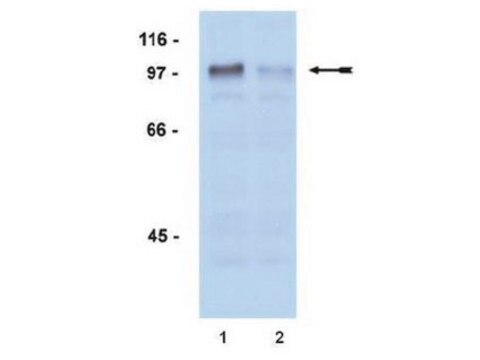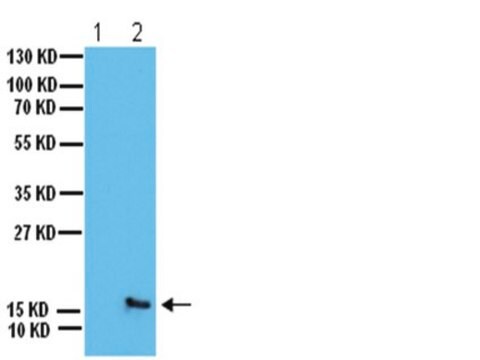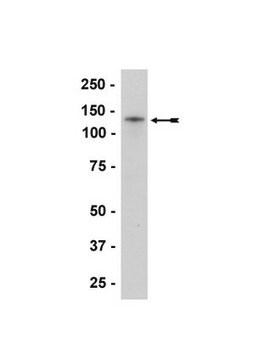07-1375
Anti-phospho-Androgen Receptor (Ser81) Antibody
Upstate®, from rabbit
Sinônimo(s):
Anti-AIS, Anti-AR8, Anti-DHTR, Anti-HUMARA, Anti-HYSP1, Anti-KD, Anti-NR3C4, Anti-SBMA, Anti-SMAX1, Anti-TFM
About This Item
Produtos recomendados
fonte biológica
rabbit
Nível de qualidade
forma do anticorpo
affinity isolated antibody
tipo de produto de anticorpo
primary antibodies
clone
polyclonal
purificado por
affinity chromatography
reatividade de espécies
human
reatividade da espécie (prevista por homologia)
dog (expected based only 1 amino acid difference), horse (expected based only 1 amino acid difference), primate (expected based only 1 amino acid difference), bovine (expected based only 1 amino acid difference)
fabricante/nome comercial
Upstate®
técnica(s)
western blot: suitable
nº de adesão NCBI
nº de adesão UniProt
Condições de expedição
wet ice
modificação pós-traducional do alvo
phosphorylation (pSer81)
Informações sobre genes
bovine ... Ar(280675)
dog ... Ar(403588)
human ... AR(367)
Descrição geral
Especificidade
Imunogênio
Aplicação
Signaling
Epigenetics & Nuclear Function
Transcription Factors
Qualidade
Descrição-alvo
forma física
Armazenamento e estabilidade
Handling Recommendations: Upon receipt, and prior to removing the cap, centrifuge the vial and gently mix the solution. Avoid repeated freeze/thaw cycles, which may damage IgG and affect product performance.
Nota de análise
R1881 (methyltrienolone) treated LNCap lysates
Informações legais
Exoneração de responsabilidade
Não está encontrando o produto certo?
Experimente o nosso Ferramenta de seleção de produtos.
Código de classe de armazenamento
12 - Non Combustible Liquids
Classe de risco de água (WGK)
WGK 1
Ponto de fulgor (°F)
Not applicable
Ponto de fulgor (°C)
Not applicable
Certificados de análise (COA)
Busque Certificados de análise (COA) digitando o Número do Lote do produto. Os números de lote e remessa podem ser encontrados no rótulo de um produto após a palavra “Lot” ou “Batch”.
Já possui este produto?
Encontre a documentação dos produtos que você adquiriu recentemente na biblioteca de documentos.
Nossa equipe de cientistas tem experiência em todas as áreas de pesquisa, incluindo Life Sciences, ciência de materiais, síntese química, cromatografia, química analítica e muitas outras.
Entre em contato com a assistência técnica








